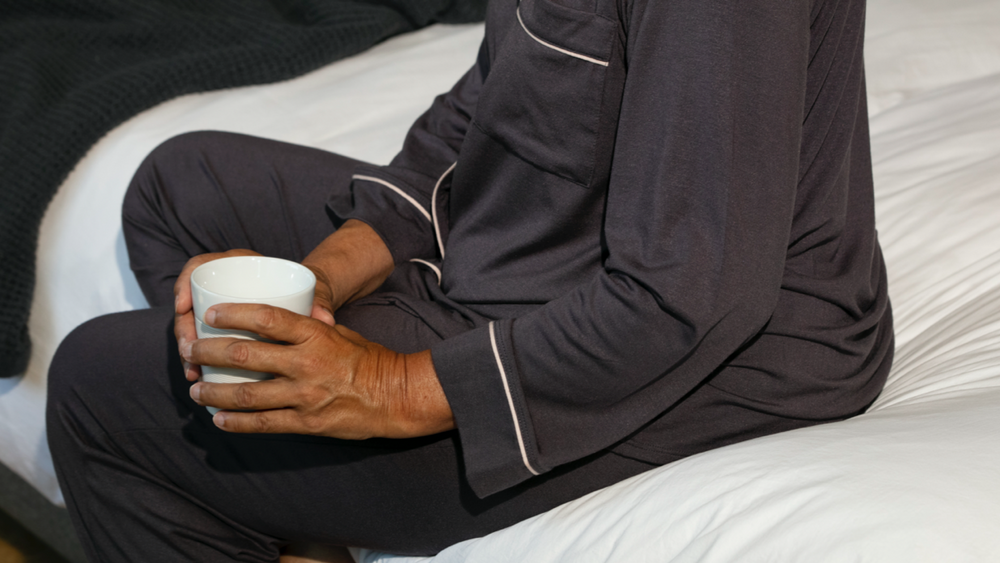Table of Contents
- Can a herniated disc cause incontinence?
- Can alcohol cause urinary incontinence?
- Can back problems cause bowel incontinence?
- Can being overweight cause incontinence?
- Can chemotherapy cause urinary incontinence?
- Can seizures cause urinary incontinence?
- Can a hysterectomy cause urinary incontinence? Does a hysterectomy cause incontinence?
- Can a kidney stone cause incontinence?
- Can trazodone cause urinary incontinence?
- Does Parkinson's cause incontinence? Does Parkinson's cause urinary incontinence?
Q: Can a herniated disc cause incontinence?
A: Yes, a herniated disc can cause incontinence. The herniated disc can press on nerves associated with bladder function thus leading to loss of bladder sensation and/or bladder control.
Q: Can alcohol cause urinary incontinence?
A: Alcohol itself can’t cause incontinence. However, Alcohol is a bladder irritant. This means that if you are already prone to urinary incontinence, alcohol could exacerbate, or even trigger, symptoms. Alcohol is also a diuretic (it causes the body to produce more urine); thus it can also result in the need to urinate more frequently. Carbonated beverages are also bladder irritants. As many alcoholic drinks are also carbonated (beer, cider, champagne etc.) this can be especially irritating for the bladder. Cutting out alcohol, especially if you tend to drink a lot of it, can significantly improve symptoms of urinary incontinence for many.
Q: Can back problems cause bowel incontinence?
A: Back problems are not generally the direct cause of bowel or urinary incontinence. Both back problems and bowel or urinary incontinence can be symptoms of the same underlying conditions, like Cauda Equina Syndrome (CES). Commonly caused by herniated discs, CES is when one experiences compression on the nerves in the lower back which deal with the sensation in your nether regions. This nerve compression can have implications for your bladder control and thus incontinence. If you begins to experience both back pain and incontinence it can be an indicator of a serious problem and you should talk to your doctor.
Less serious causes for back pain and incontinence include obesity which can put undue pressure on the bladder, pelvic floor, abdomen and back.
Q: Can being overweight cause incontinence?
A: Yes being overweight or obese can cause incontinence. Having extra weight in your body, particularly in your abdomen and pelvis, can put added pressure on the bladder thus causing a weakening of the muscles and connective tissues in the pelvis. Studies have shown that even a small increase in weight can significantly increase the likelihood that one will experience urinary incontinence (a 60-100% increase). Even as little as a 5-10% weight loss can significantly improve incontinence symptoms in many.
Q: Can chemotherapy cause urinary incontinence?
A: Yes chemotherapy can cause urinary incontinence. Additionally, chemotherapy can lead to vomiting which can put added pressure on the bladder, worsening symptoms of certain types of incontinence if one was already experiencing them (specifically stress incontinence). Chemotherapy can also cause nerve damage or changes in hormones that would similarly affect one’s urine retention.
It is also possible for certain cancers themselves to cause incontinence. Cancers that affect the bladder, urethra or other parts of the pelvis can cause urinary incontinence. Cancers that cause chronic cough can put pressure on the bladder leading to UI. Breast cancer can cause hormonal changes which have effects on bladder control. And cancers that affect the nerves that deal with the pelvic floor and bladder control can also cause issues with incontinence.
Q: Can seizures cause urinary incontinence?
A: Yes, it is possible for incontinence to occur during seizures and seizing. However seizures themselves are not a main cause of incontinence.
Q: Can a hysterectomy cause urinary incontinence? Does a hysterectomy cause incontinence?
A: Yes, a hysterectomy can cause urinary incontinence. However, It is rare that a hysterectomy alone is the main cause of urinary incontinence. It is possible, since hysterectomy operation runs the risk of causing injury to the muscles and nerve tissue in the bladder area, that this injury could lead to UI post procedure. This is because the reproductive system, including the uterus, is intimately tied to the bladder system, and damage to the muscles in that area that might come from surgery can ultimately damage the pelvic floor muscles in the process.
Q: Can a kidney stone cause incontinence?
A: Kidney stones can irritate the bladder and result in urinary urgency, frequency, and at times urge incontinence. Kidney stones can also interfere with urination leading to blockages which can make it difficult to urinate itself, cause further irritation, and leading to overflow incontinence.
Q: Can trazodone cause urinary incontinence?
A: Yes, it is rare that trazodone can cause urinary incontinence, but it is possible. Trazodone can cause the contraction of the bladder, and the sedation might decrease the feeling of needing to urinate leading to incontinence or mobility issues in getting to a bathroom fast enough.
Q: Does Parkinson's cause incontinence? Does Parkinson's cause urinary incontinence?
A: Yes Parkinson's can cause urinary incontinence. Patients with Parkinson’s disease often experience urge incontinence but can also experience overflow incontinence. These issues are mainly caused by neurological problems in the pathways that connect the brain to the bladder, thus not signaling properly when the bladder is full. Creating a voiding routine can be extremely helpful in dealing with incontinence and Parkinson's, as it can prevent the bladder from overflowing. Wearing incontinence products can also be a good method of treatment as they can absorb urine and prevent accidents, should either mobility issues or signaling issues prevent you from reaching a bathroom in time.
Learn More About Urinary Incontinence:
Take the Quiz: Finding the Right Product for you.
Normalize This: Urinary Incontinence
